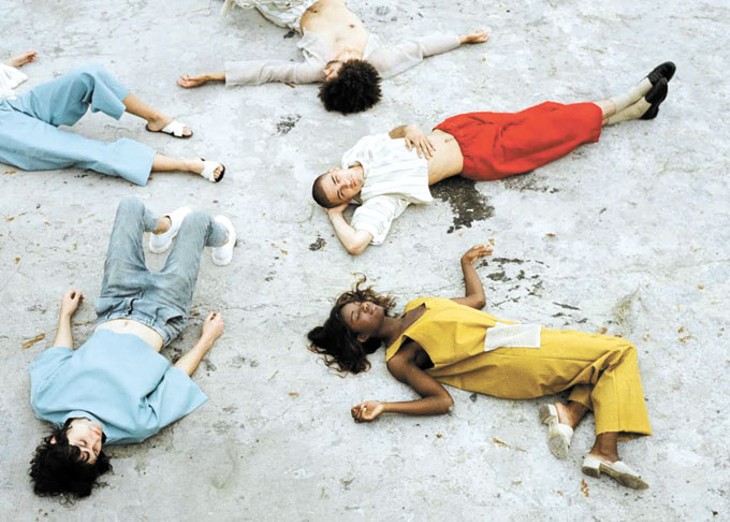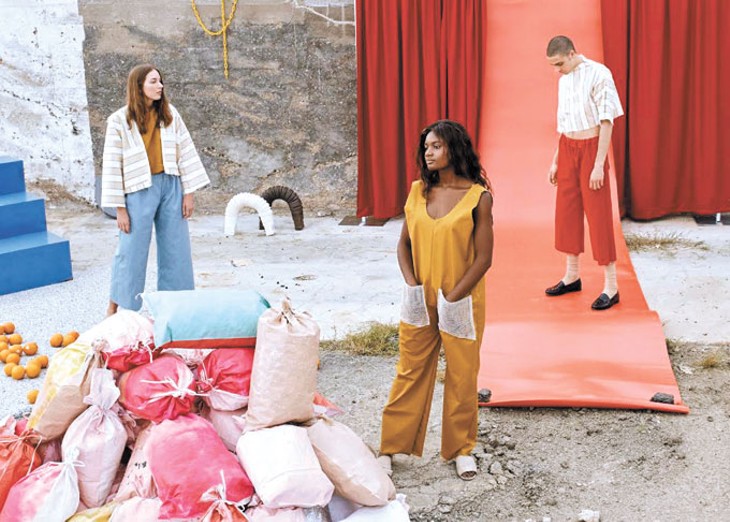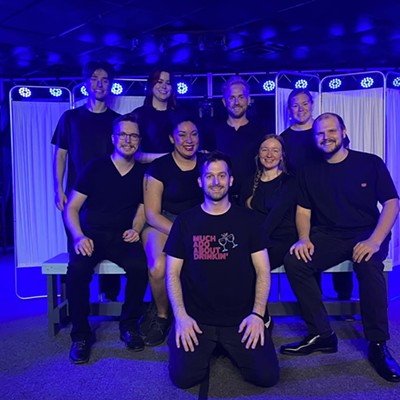In a time when the importance of arts cannot be more emphasized, activist Sarah Nsikak, a first-generation American from Nigeria, makes strides to support arts and music programs in Oklahoma. As the owner of Stone + Harper, she addresses environmental concerns by making products out of sustainable materials and donates 5 percent of every purchase to programs such as El Sistema, a free orchestral music program.
Stone + Harper is named after two influential women activists, Lucy Stone, a white woman, and Frances Harper, a black woman. Both lived in a time of racism and discrimination. Stone was one of the first women to earn a college degree in 1847. She became an activist for abolitionism and suffrage and later formed American Woman Suffrage Association (AWSA). Harper, born free in 1825, shared this fire to fight societal injustices and joined AWSA.
“Stone and Harper, in a time so immersed in racism and discrimination, found solidarity in something bigger than themselves,” Nsikak said.
She said we still have a long way to go in achieving social justice.

Creative recycling
While in graduate school, Nsikak felt restless and desired to find a creative outlet. In her opinion, creativity is an opportunity for an individual to find their niche and thrive. Nsikak revealed that she learned to sew from her Nigerian grandmother, “a very talented seamstress in her village.” She was raised around traditional attire and described it as handmade, regal and elegant.“I’ve always loved the craft and wanted to grow in what my grandmother gave me to keep that alive,” she said.
For kids growing up today, creativity is often stifled. Nsikak experienced this when she changed school districts that prioritized sports over arts.
“This is why I feel strongly about the arts and wanted to give to programs that offer that resource to children that otherwise wouldn’t have it,” she said.
In an interview with Oklahoma Gazette, Nsikak used the words “sustainable” and “ethical” to describe her brand — something the fashion industry is not. Lately, the industry has received a lot of backlash regarding environmental and moral concerns.
“The fashion industry is one of the very top sources of waste in the world,” Nsikak said.
The materials used in clothing take a long time to degrade and can be toxic. Synthetic fibers such as polyester, nylon and acrylic take years to degrade. Even when natural fibers like cotton, linen and silk are used, seemingly better since they emit methane during degradation similar to food waste, these products go through many doses of chemicals — bleach, dye, etc. — to make clothing, and the toxins can reach groundwater and cause environmental problems.
“I use mostly denim, linen and canvas, but I also have a collection of remnant fabric that I add to the mix of recycled materials,” Nsikak said.
She seeks also to reach harmony with people of every gender, race and culture. Her first fashion show represented men and women of color. A portion of the ticket sales was donated to support mental health in the state of Oklahoma. Nsikak works to bring a new attitude about the clothes we wear — to re-wear them for years.
“It’s important to think about who was affected in the process of creating a seemingly inexpensive garment,” Nsikak said.
Stone + Harper sells “upcycled or reworked vintage garments that were very specific to the color scheme and texture of the brand” with a focus on comfort and functionality.
“[Creating a line of sustainable fashion] really humanizes the process and exploits the corrupt fast-fashion industry,” Nsikak said.
The fast-fashion industry urges customers to participate in a cycle of consistently buying clothes as styles change and throwing away what’s in their closets.

Nu lifestyle
Stone + Harper introduces a subscription opportunity called Nu Form Club, a play on “uniform.” By going online to stoneandharper.com, you can choose how many pieces you want and select your size, lifestyle and preference in textures as well as anything you dislike, and Nsikak curates an outfit for you. To get to know you better, the form also asks what your ideal outfit is and what your style identity is, such as what designers or labels fit you best. There are text boxes for you to write what your personal style is from using fictional characters, celebrities and cultures, and you can share any extra details that come to mind to best explain your style personality.“It is also very affordable, so my hope is to give busy people the opportunity to have clothes that fit practically into their lifestyle with no time or effort on their end,” Nsikak said. Price options start at $35 for two vintage pieces to $75 for one handmade and three vintage pieces, including one upcycled piece. Upcycling is a creative process to transform byproducts, waste materials or unwanted materials into products of quality.
“I’m hopeful that there will be a boost of awareness about the disparities in the fashion industry, and I wanted to be a part of that here in Oklahoma City,” Nsikak said.
Nsikak embodies the spirit of Stone and Harper, making strides in supporting arts and the environment through her ethical and sustainable fashion.
Visit stoneandharper.com.
Print headline: Historical habit; A local fashion line honors historical women by creating sustainable clothing.









